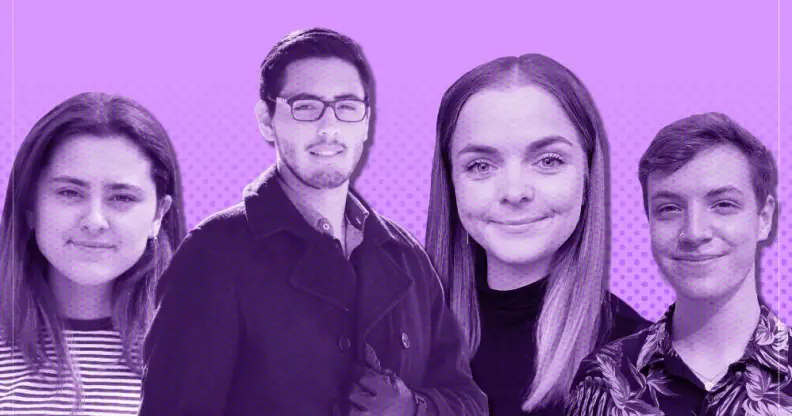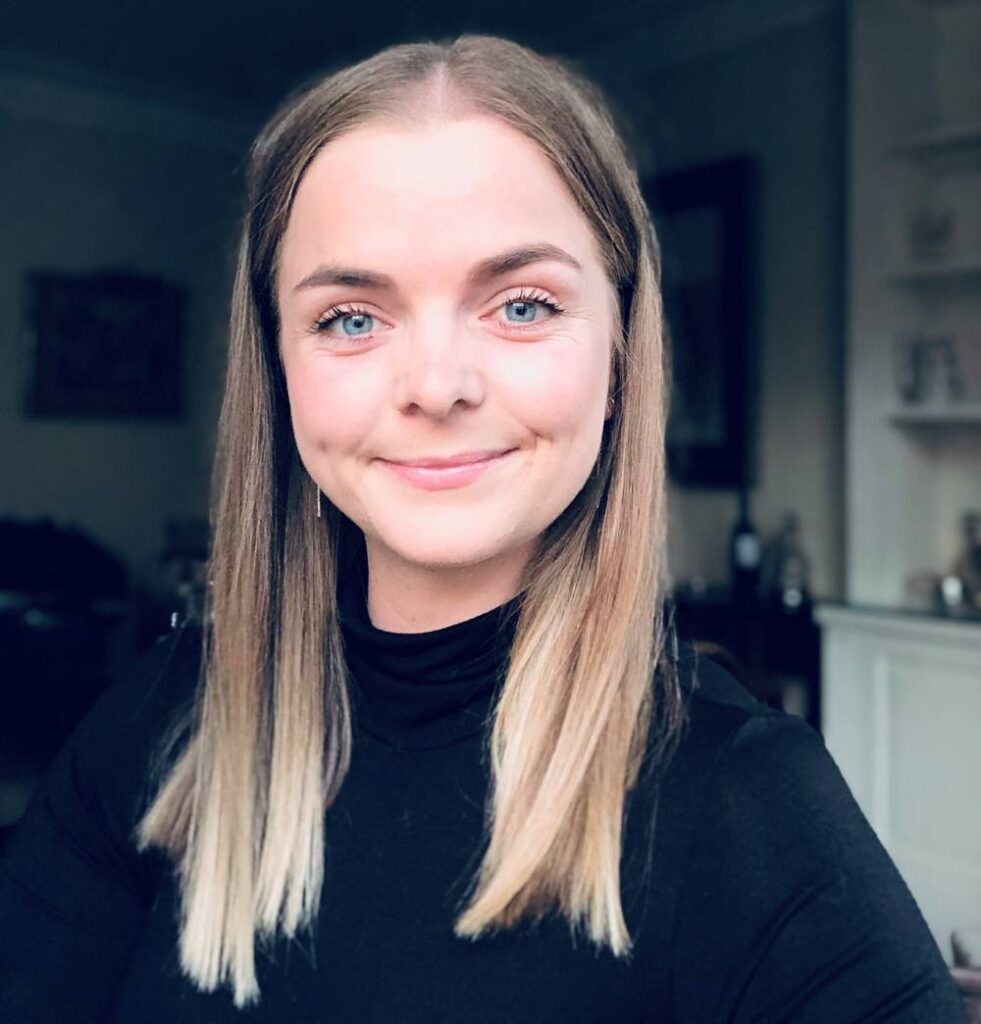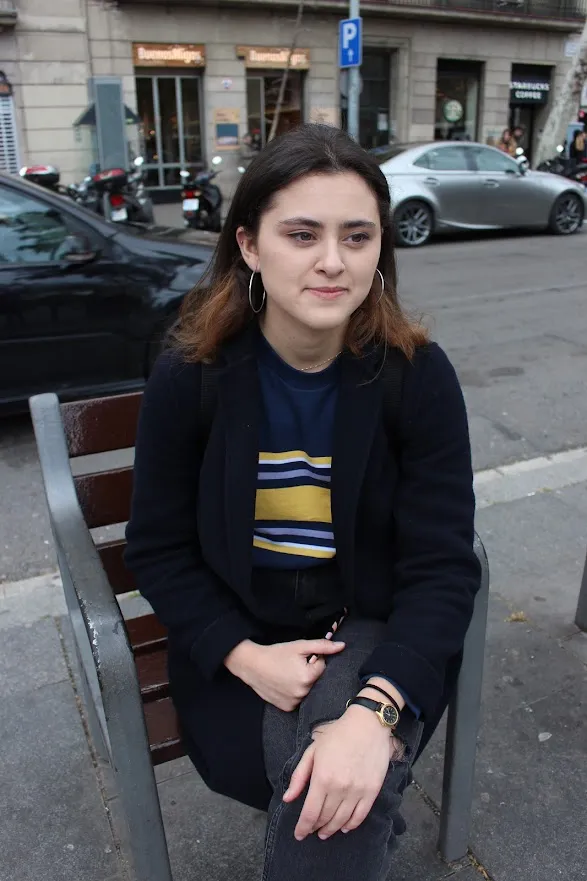’Work helped me realise I’m bisexual’: 4 LGBT+ workers on the joy of an inclusive employer

(Provided)
Work plays a major role in our lives, and we deserve to work without fear or discrimination.
How would you feel if one quarter of your life was spent hiding your identity for fear of facing discrimination?
Sadly, around 35 per cent of LGBT+ staff experience just this, according to Stonewall research. On average, Britons spend 25 per cent of our lives working, and for some, it’s time spent not being their fullest self.
Stonewall research also found that one in five LGBT+ staff have been the target of negative comments or conduct at work because of their sexual or gender identity, while 18 per cent of LGBT+ people looking for work said they were discriminated against while trying to find a job.
It’s why for many companies, diversity and inclusion efforts are paramount. One such firm is Accenture, an Ireland-headquartered, Fortune 500 multinational that specialises in IT services and consulting.
Recognised by Stonewall as a top employer for LGBT+ people for the last six years, it actively supports its queer employees, apprentices and interns with a commitment to “ensuring an inclusive environment for all employees regardless of their sexual orientation, gender identity, or expression”.
PinkNews spoke to four of Accenture’s LGBT+ employees about being queer at work.
Rian Leggett (he/him)

(Provided/Rian Leggett)
For Rian, who is gay, joining a company with excellent LGBT+ inclusion policies was a top priority.
“It played quite a big part [in choosing where to work] because I wanted to feel comfortable where I was working to just be myself rather than having to hide away like I had to at school,” he tells PinkNews.
Rian joined Accenture two years ago as a technology apprentice. He is now in the final year of his apprenticeship, and praises the company’s Pride Network for making him feel comfortable with his identity at work.
When he joined, he wanted to become a part of the company’s Pride Network, which he says “allows us to talk to other people in the LGBT+ community, so we’re able to connect with people all across the business that might not work in the same areas as us”.
“If we need to, in work situations, if we faced any sort of discrimination, we know that we’re able to turn to each other.”
The Pride Network gave him that “safe space and that connection with people.” His first action after joining was writing about himself and his sexuality for the company’s internal blog. Many others have written their stories too, which Rian says “has been very inspiring.”
Rian felt safe at Accenture to come out during the first few weeks of his training. “I felt like I could be open with them, I didn’t feel like I needed to lie about my sexuality like I have done before, which is very nice,” he said.
Laura Jamieson (she/her)

(Provided, Laura Jamieson)
For Laura, meeting a welcoming and truly open community at Accenture helped her to realise, explore and embrace her LGBT+ identity.
Before, she was an “active ally”, but says: “Honestly, had I not been at Accenture, would I have explored this and ever known that I am bisexual? I don’t know that I would have. I really do credit the Pride Network at Accenture for inviting me to share in the openness and joy of the LGBT+ community.”
“It just created an environment that was so safe and accepting that it didn’t feel… as hard as it might have been otherwise.”
Laura is an inclusion and diversity expert, working across HR, consulting and recruitment to drive cultural and organisational change through awareness and inclusion – part of that is to encourage LGBT+ inclusion and help the community feel comfortable at work.
When it comes to diversity and inclusion (D&I), Laura is firm that it is “a marathon, not a sprint”, and it is something that “takes dedicated resources”.
“If you’re always looking for the quick fix, you’ll never be able to achieve systemic change.”
Crucially, Laura is passionate about the roll-out of Accenture’s mandatory anti-racism training and is working to ensure that trans people are respected and included in every way, noting the importance of intersectionality in D&I work and encouraging everyone to get comfortable with being uncomfortable.
Mario Lamas Saavedra (he/him)

(Provided, Mario Lamas Saavedra)
Mario is originally from Mexico, and lived in Chicago for a while before coming to the UK.
He feels lucky that when he began his current role three years ago, he didn’t have to come out.
“When I joined Accenture,” he says, “I didn’t tell anyone, because I’ve always had that mentality that just because you’re LGBTQ+, you don’t need to be shouting to everyone. A straight person wouldn’t have to do that would they?”
For many colleagues, Mario’s sexuality was accepted without the need for discussion. Naturally, he felt compelled to “come out” to a few people due to moving through different sectors, but he found that seeing people wearing Pride and Ally Lanyards gave him “a little bit more comfort”.
Mario says that at Accenture, there is “representation of all the different areas of the spectrum, including allies”, and they seek to “make sure that we celebrate all of them and have open conversations”.
Intersectionality in particular is a “core value at the company”. Mario says: “We understand that all of us have different backgrounds… all of us want or represent different things and would like to be in a space where those boundaries are torn, and it doesn’t really matter who you are. I think that’s part of our ethos.”
Daniella Leon (she/they)

(Provided, Daniella Leon)
Daniella is a non-binary lesbian who joined the Accenture Strategy and Consulting Graduate Programme, in March 2020. They graduated from UCL, where they studied modern foreign languages, in 2019.
Her work involves making inclusive policy changes for her clients as well as delivering training initiatives to people at Accenture to help them with LGBT+ inclusion. They help allies and cisgender people to understand things like pronouns, genders beyond the traditional binary, and more.
She credits the company with “uplifting” non-binary and trans people and making sure “their voices are really considered”.
Of training initiatives, they said: “It’s helped us because it gives us an opportunity to share our voice. The Pride Committee members are all facilitators of these training, and we speak from personal experiences, enabling us to talk to others about what is or isn’t okay and how they can directly help us.”
Daniella, who works in HR strategy and consulting and is also the lead of the Pride Committee for consulting analysts, added: “We have peace of mind knowing that our colleagues are aware of what to do and how to go about protecting us, for instance if they witness acts of homophobia or transphobia, or in terms of understanding the nuances between gender expression, gender identity, sexualities, and more.”
Visit Accenture to discover exciting student and graduate opportunities in London, Manchester and Newcastle today, and begin building a career where you’ll get the support, training and opportunities to develop expertise that disrupts and transforms industries.

